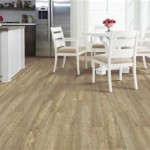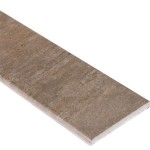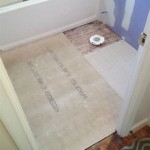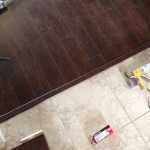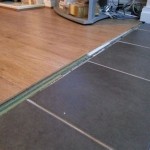The Transition Piece from Tile to Carpet: An Essential Guide
When it comes to flooring, the transition from tile to carpet can be a tricky one. But with the right transition piece, you can create a seamless and stylish look that will enhance the overall aesthetic of your home. Here's a comprehensive guide to help you understand the essential aspects of tile-to-carpet transition pieces:
1. Types of Transition Pieces
There are various types of transition pieces available, each with its unique advantages and applications. Here are the most common ones:
- T-Molding: A popular choice, T-molding is a narrow strip of material that fits snugly between the tile and carpet, creating a smooth and defined transition.
- Reducer Strip: Reducer strips are used to transition from higher-to-lower flooring surfaces. They create a ramp-like effect, allowing for a gradual transition between different floor heights.
- Stair Nose: Stair noses are specifically designed for use on stairs, providing a safe and seamless transition from tile to carpet on stair treads.
- End Cap: End caps are used to finish off the exposed edge of a carpet, typically at the end of a room or doorway.
2. Materials
Transition pieces are available in various materials, including metal, wood, and plastic. Here's a brief overview:
- Metal: Metal transition pieces, such as aluminum or brass, are durable and long-lasting. They offer a sleek and modern look.
- Wood: Wood transition pieces, such as oak or maple, add warmth and elegance to the space. However, they require more maintenance than other materials.
- Plastic: Plastic transition pieces are cost-effective and easy to install. They come in a wide range of colors and styles, but may not be as durable as metal or wood.
3. Installation
Installing a tile-to-carpet transition piece is a relatively straightforward process that can be DIY-friendly. Here are the general steps involved:
- Measure and mark the location of the transition piece.
- Adhere the transition piece using glue, nails, or screws.
- Smooth out any rough edges with a file or sandpaper.
- Apply caulking around the edges for a clean and finished look.
4. Maintenance and Care
Maintaining a tile-to-carpet transition piece is crucial to ensure its longevity and functionality. Here are some tips:
- Clean the transition piece regularly with a damp cloth and mild detergent.
- Avoid using harsh chemicals or abrasive cleaners.
- Inspect the transition piece periodically for signs of damage or wear and tear.
- Re-caulk the edges as needed to prevent moisture or dirt buildup.
5. Style Considerations
Transition pieces not only serve a functional purpose but also impact the overall style of your space. Here are a few tips to help you choose the right style:
- Match the material and finish of the transition piece to the surrounding flooring materials.
- Consider the width and height of the transition piece to complement the scale of the room.
- Use decorative trim or accent pieces to add a touch of flair to the transition area.
By understanding the essential aspects of tile-to-carpet transition pieces, you can create a seamless and stylish transition between your different flooring surfaces. Whether you opt for a sleek metal T-molding or a warm wood reducer strip, the right transition piece will enhance the overall aesthetic of your home.

4 Tile To Carpet Transition Options For A Stunning Floor

4 Tile To Carpet Transition Options For A Stunning Floor

6 Tile To Carpet Transition Options For Flooring

M D Building S 36 Unfinished Hardwood Trans Tile Carpet W Anchors 48927 The Home Depot

6 Tile To Carpet Transition Options For Flooring

Tile To Carpet Transition 4 Options For A Stunning Floor

How To Fix Frayed Carpet At Tile Transition

6 Tile To Carpet Transition Options For Flooring

4 Tile To Carpet Transition Options For A Stunning Floor

Aluminium Carpet To Tile Transition Strips With 8 12mm Height
Related Posts

